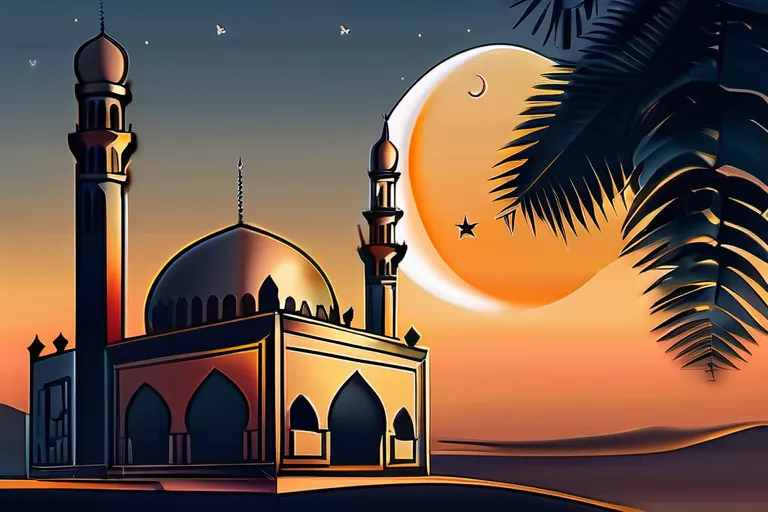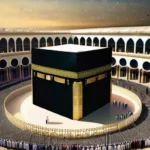Explore the key beliefs, practices, and history of the world’s fastest-growing religion.
Islam is the world’s fastest-growing religion, with over 1.8 billion followers worldwide. In this article, we delve into the main concepts that define Islam, providing a comprehensive guide for those seeking to understand this rich and diverse faith.
The Five Pillars of Islam
The Five Pillars of Islam form the backbone of this faith, much like the foundation supports a towering structure. These five fundamental practices are not just commands from above but principles that guide Muslims in their daily lives and spiritual growth.
- Shahada: The first pillar is the declaration of faith, ‘There is no god but Allah, and Muhammad is the messenger of Allah.’ It’s like a pledge to a lifelong companion, binding individuals deeply into the fabric of their community. This simple yet profound statement encapsulates one’s acceptance of monotheism and submission to God.
- Salah: Prayers are a daily ritual that connect Muslims with the divine through a series of prescribed acts. Imagine reaching out for water from an endless well; each prayer is like drawing nourishment, not just spiritual but also mental and emotional. Five times a day, Muslims bow down before their Creator, making every moment count.
- Zakat: This is the practice of giving alms to those in need. It’s as if you are sowing seeds into the ground; while it may seem small, it can grow into something much larger. Zakat ensures that wealth is distributed equitably and that every Muslim contributes to a more just society.
- Sawm: Fasting during Ramadan is like holding your breath in deep contemplation. It teaches discipline and self-control while also fostering empathy for those who struggle with basic necessities. The act of abstaining from food and drink from dawn till dusk creates a powerful spiritual experience, reminding Muslims to be mindful of their blessings.
- Hajj: The pilgrimage to Mecca is the ultimate journey, symbolizing submission and unity. It’s like retracing the steps of prophets and saints, uniting believers from every corner of the world under one roof. This holy trip is a reaffirmation of faith, a personal test of commitment, and an eternal memory.
Together, these pillars support the edifice of Islam, ensuring that its followers remain grounded in their beliefs and practices. Each pillar plays a unique role in shaping the spiritual journey of every Muslim, making their path both challenging and rewarding.
The Quran: The Holy Book of Islam
The Quran, often referred to as Al-Kuran, holds a central and sacred position in Islam. It is the holy book that Muslims believe was revealed by Allah (God) through the angel Gabriel to Prophet Muhammad over a period of 23 years. The question arises: How did this text come into being, and why does it matter so deeply to believers?
The revelation began with the first verse, ‘Read in the name of your Lord who created,’ recorded at the Cave of Hira where Prophet Muhammad was meditating. This moment marked the start of what would become a vast literary treasure, containing verses that guide Muslims in their faith and practices.
The Quran is not just a collection of texts; it’s a living entity that interacts with its readers. Each verse is like a key to understanding the universe and the purpose of human existence. Muslims see the Quran as the final and complete revelation from God, completing earlier revelations found in scriptures like the Torah and the Gospel.
The book’s structure is both poetic and profound, with its verses weaving together topics such as creation, morality, justice, and guidance for daily life. Each surah (chapter) has its own unique focus and significance, from the opening chapter Al-Fatiha, which Muslims recite in every prayer, to the powerful chapters that detail the stories of prophets and lessons for modern times.
The Quran’s impact extends beyond mere reading; it is a guidebook for all aspects of life. From personal conduct to community interactions, its teachings provide a framework for morality and ethics. It serves as a beacon of light, offering solutions to contemporary issues and affirming the importance of humility, compassion, and faith.
Moreover, the Quran’s influence on art, literature, philosophy, and science cannot be overstated. Through its verses, Muslims find inspiration to create, innovate, and strive for excellence in every field. The question then arises: How can we delve deeper into its teachings and apply them meaningfully in our lives?
In essence, the Quran is more than a book; it is a companion on the journey of faith, offering continuous guidance and support. As Muslims read and reflect upon its verses, they seek to understand not just words but the eternal truths that underpin their religion.
Hadith: The Sayings and Actions of Prophet Muhammad (PBUH)
The heart of Islamic practice lies heavily in the Hadith, the recorded sayings and actions of Prophet Muhammad (PBUH). Imagine the Quran as a tree, its trunk providing shelter and sustenance, while the Hadith are like its branches, extending its blessings into every nook and cranny. How do these teachings influence everyday life for Muslims?
The significance of Hadith cannot be overstated; they act as a compass, guiding Muslims in making decisions that align with Islamic law. Through the Hadith, the Prophet’s sayings provide context to the Quranic verses, helping clarify ambiguities and offering practical guidance. For instance, when the Quran states “Pray as you see the guardian”, the Hadith gives us insight into how exactly this prayer should be performed.
Abu Dawud and Tirmidhi are just two of the many collectors who have compiled these invaluable teachings. Their books, like ancient scrolls, hold wisdom that has stood the test of time. Consider one of the most well-known Hadiths: ‘Actions are judged by their intentions.’ How often do you consider your motives before making a decision? This Hadith teaches us to reflect on our true intentions, ensuring that every action is rooted in faith and compassion.
The Hadith also serve as a historical document, preserving the way of life of the early Muslim community. They detail interactions between Prophet Muhammad (PBUH) and his companions, offering lessons on leadership, interpersonal relationships, and even dietary laws. For instance, the Hadith describing how the Prophet used to eat dates upon returning from the mosque provides insight into simple yet meaningful rituals that have become a part of daily life for Muslims.
Understanding and integrating these teachings is not just about rote memorization; it’s about embracing a way of life that seeks balance, justice, and harmony. In a world often characterized by chaos and uncertainty, the Hadith offer a roadmap to navigating through life’s complexities with wisdom and integrity. How can you incorporate these teachings into your own daily practices?
Sunna: The Model for Muslim Life
The life of Prophet Muhammad (PBUH) is often seen as a beacon of light, guiding Muslims through the complexities of daily living. Imagine, for a moment, if you could travel back in time to the bustling markets and serene mosques of 7th century Arabia. How would you navigate the intricacies of a faith that was just beginning to take root? This is where Sunna, or the example set by Prophet Muhammad (PBUH), becomes indispensable.
Think of Sunna as a compass, directing your steps through life’s journey. It encompasses not only his sayings and actions, but also his overall behavior and lifestyle. How did he interact with people? What were his choices when faced with difficult decisions? These questions are answered in the Hadith, which we explored earlier. But Sunna goes beyond Hadith; it provides a holistic view of how Prophet Muhammad (PBUH) lived every moment.
Consider this: If you were to follow the path trodden by Prophet Muhammad (PBUH), would your interactions with others be kinder and more compassionate? Would your responses in challenging situations be more thoughtful and just? Sunna offers a mirror, reflecting the best of human behavior. It teaches us how to treat our families, neighbors, and even enemies with dignity and respect.
By following Sunna, Muslims strive to emulate the Prophet’s qualities such as humility, honesty, and empathy. Each day presents an opportunity to reflect on his teachings and apply them in real-life scenarios. For instance, when you face a disagreement, do you remember how he handled disputes with wisdom and patience? Or when helping someone in need, can you embody his spirit of generosity?
Ultimately, Sunna is more than just a set of guidelines; it is a living legacy that continues to influence the lives of millions worldwide. By integrating Sunna into our daily routines, we not only honor the Prophet but also enrich our own spiritual journeys. How will you incorporate Sunna into your life today?
Through this lens, every moment becomes an opportunity for growth and self-improvement. As we walk in the footsteps of Prophet Muhammad (PBUH), let us remember that his example is not just a historical lesson but a timeless guide to a better way of living.
The History of Islam
Imagine a journey through time, tracing the footsteps of a religion that has grown from a small community in Arabia to become one of the world’s largest faiths today. How did Islam originate? Who were its key figures and what pivotal events shaped its course over centuries?
The story begins with Abraham, who is revered as a patriarch by Muslims, Christians, and Jews alike. But it was in 610 CE that the real narrative of Islam began to unfold. In the heart of Mecca, amidst the bustling bazaars and desert sands, a man named Muhammad (PBUH) received his first revelation from Archangel Gabriel. This marked the beginning of what would eventually become one of the world’s most influential religions.
The message that Muhammad (PBUH) brought was clear and profound: there is only one God, Allah, and He has chosen Muhammad as His final messenger. Over the next two decades, Muhammad faced numerous challenges, from opposition by his own people to the eventual acceptance of Islam in Medina. Each challenge tested his resolve, shaping not just a man but an entire community.
- **The Hijra**
- The battle of Badr
- The conquests of Mecca and the establishment of the Islamic state under Muhammad’s leadership
These events were not just battles won or lost; they were milestones in the transformation from a persecuted minority to a recognized political entity. The period following Muhammad’s passing, known as the Rashidun Caliphate, saw rapid expansion of the Islamic empire under the leadership of his close companions.
From the early days of Islam, key events such as the Fall of Constantinople in 1453 and the Napoleonic Wars in the late 18th century had profound impacts. The spread of Islamic influence through trade routes, conquests, and cultural exchanges marked a period of significant growth.
In more recent times, movements like the Islamic Revivalism and Modernist Islam have shaped contemporary Muslim thought, addressing modern challenges while preserving core beliefs. Each era has its own unique narrative, yet the essence of Islam remains a unifying force across time and space.
From its roots in Mecca to its global presence today, the history of Islam is a testament to resilience, adaptation, and the enduring appeal of its message. As we explore this journey, one question lingers: what will be the next chapter in the story of Islam?
Islam Around the World: Diversity and Unity
Imagine a vast tapestry, woven across continents and through centuries, where every thread represents a different culture yet all interlock to form one beautiful design. That’s Islam around the world. It’s a religion that has spread far and wide, adapting to local customs while maintaining its core principles. How do we make sense of this diversity without losing sight of unity?
Let’s start with the basics: Muslims, or people who follow Islam, come from every corner of the globe – from the bustling streets of Cairo to the snowy mountains of Kashmir. Each community has its unique traditions and practices, but they all trace back to The Quran, the holy book revealed to Prophet Muhammad (peace be upon him), as a source of guidance.
Consider the Sufi tradition, with its emphasis on spiritual purification and direct experience of God. In contrast, some communities place a greater importance on ritual practices like prayer and fasting during Ramadan. But despite these differences, Muslims share common values such as compassion, justice, and the belief in one God.
The Hajj pilgrimage to Mecca is another unifying factor. Millions of pilgrims from all walks of life come together to perform rituals that are deeply meaningful yet equally accessible to everyone, transcending cultural barriers. It’s like a grand symphony where every instrument plays its part, contributing to the harmony of the whole.
While diversity enriches the Islamic experience, it also presents challenges in maintaining unity. How do we balance respecting local customs with adhering to universal principles? This question has been at the heart of Islamic history and continues to shape contemporary debates among Muslims worldwide.
The answer lies not just in tradition but in a dynamic interpretation that allows Islam to evolve while staying true to its core values. As we explore this rich tapestry further, remember that each culture adds a unique color to the fabric of global Islam, making it vibrant and resilient. How do you see your own contribution to this ongoing story?
Conclusion
 By exploring the Five Pillars of Islam, the Quran, Hadith, Sunna, and the life of Prophet Muhammad (PBUH), we have gained valuable insights into the core beliefs and practices that shape the lives of Muslims around the world. We hope this article has provided a clear understanding of Islam and its main concepts.
By exploring the Five Pillars of Islam, the Quran, Hadith, Sunna, and the life of Prophet Muhammad (PBUH), we have gained valuable insights into the core beliefs and practices that shape the lives of Muslims around the world. We hope this article has provided a clear understanding of Islam and its main concepts.











